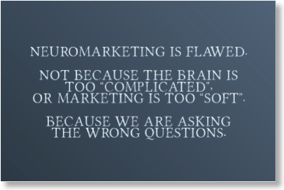The Drake Equation
But this is just an excuse to talk about my favorite equation—the Drake Equation. And by “favorite" I mostly mean it is underrated and deserving of more praise, like how one would talk about an obscure “favorite” athlete or book. Because really, favorite equation?!
Part of what I like about the Drake Equation is its seeming absurdity at first glance. It is "a probabilistic argument used to arrive at an estimate of the number of active, communicative extraterrestrial civilizations in the Milky Way galaxy.”

On top of being about something quite out there (oh!), it also not actually all that practically useful. Recently in an In Our Time podcast about extremophiles and astrobiology, one of the guests described in the equation in the most delightful way, that, “The number N depends on
- The average number of planets that potentially support life, which WE DO NOT KNOW.
- The fraction that develop life at some points, which WE DO NOT KNOW.
- The fraction that develop intelligent life, which WE DO NOT KNOW.
- The fraction releasing detectable signs into space, which WE DO NOT KNOW.
- And the length of time releasing detectable signals, which WE DO NOT KNOW.”
But far from being a failure, it has in fact been incredibly influential. Why? Because it breaks up a daunting problem into more manageable pieces, some more manageable than others. A generation ago, we did not know the average rate of star formation, or the fraction with planets, but now we have decent ideas of those. And one can imagine that we will either find out what some of the other terms are, or break those into manageable problems that we can solve.
Simply put, the Drake Equation provides the scientific community with a strategy to make systematic progress on a difficult question. More than difficult in fact, on what is an impossible question to address with current technology.
So when I hear blanket criticisms of applying basic sciences to business or societal problems, I take heart in the fact that Frank Drake and his coauthors were able to provide a sensible scientific framework for such a seemingly absurd question.
The Problem with Neuromarketing
Neuroscience either tells me what I already know, or it tells me something new that I don’t care about”.As criticisms go, it is quite persuasive. It fits with the common view of technology where the shiny new toy replaces the old cruddy way of doing things. But whereas years ago I would have jumped to take on the challenge and “show those !@#$%s”, I increasingly view such statements as something a trap, if (sometimes) a well-intentioned one.

The problem, not always but often, is that it lets someone else define the objective. Now you are solving someone else's problems, rather than what you are actually equipped to solve. Moreover, the problem with “other people’s problems” is that they are often intractable, or where the value of the returns is one-sided.
For example, I’ve had people ask for something like this, “I think our brand efforts are really reaching our target audience, but it’s not showing up in the standard metrics. Do you think you can find something in the brain that would show our effectiveness?"
Lest you think this is just practitioners lacking in scientific knowledge, here’s some from academics. “This type of behavior doesn’t make sense under any of our standard models. Maybe there’s something hardwired in our brains that produce these weird choices?” Or to paraphrase my favorite, Hey, I have this theory, can we test to see whether there’s support for it at the neural level?”
So yes, I think the current state of neuromarketing has many shortcomings, but I thnk the biggest one is that we’ve been letting others define our questions.